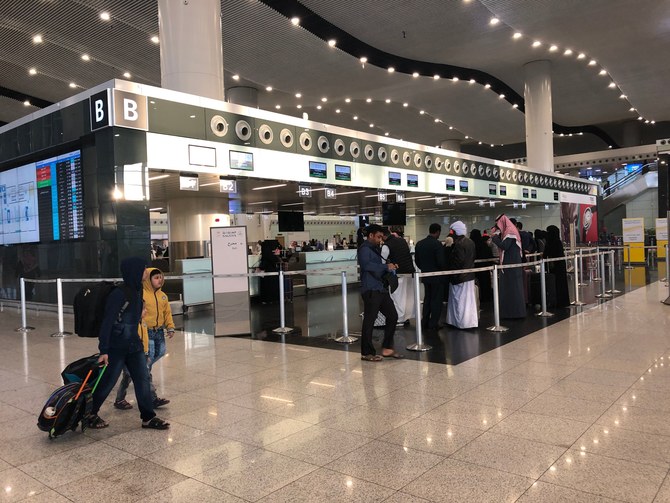JEDDAH: King Khalid International Airport in Riyadh has won a Skytrax award for being the most improved airport, ranking 29th out of the world’s top 100 airports.
People from more than 100 countries completed questionnaires, with their answers collected to evaluate the customer experience across airport services.
The survey was based on key performance indicators such as check-in, arrivals, transfers, shopping, security and immigration, and departure.
KKIA, which was established in 1983, came third in the top 10 Middle East airports.
It operates over 51 international and domestic airlines traveling to more than 105 destinations, more than 217,000 flights take off from its runway, and its facilities serve more than 28.5 million passengers annually.
Mohammed Al-Maghlouth, CEO of Riyadh Airports Company, said he was honored to receive the award as it came from passengers who had participated in the Skytrax survey and shared their traveling experiences in the Saudi capital's airport.
“This milestone demonstrates our ongoing commitment to the aspirations of Vision 2030 and the national aviation strategy,” he said. “I would like to thank our wise leadership for their vision and guidance, without which none of this would be possible. I would further like to thank the General Authority of Civil Aviation, Matarat Holding Company, and our partners for helping us enhance and develop our services and facilities. With their support, King Khalid International Airport provides a second-to-none travel experience that rivals some of the most established airports around the world.”
The company was established in 2016 as part of Saudi Arabia’s plan to privatize the aviation sector.













